Georgetown University Interim President Robert M. Groves supported the university’s campus in Qatar and highlighted the university’s response to antisemitism during a U.S. House of Representatives committee hearing July 15.
During the three-hour hearing before the Committee on Education and Workforce, Groves delivered an opening statement, emphasizing his written testimony that detailed Georgetown’s efforts to address antisemitism. Groves also addressed questions about alleged antisemitism from faculty and speakers, as well as the university’s connections to the Qatar Foundation, a government-supported educational nonprofit that operates Georgetown University in Qatar (GU-Q).
Groves, who largely summarized his previously submitted written testimony, said Georgetown’s Jesuit values encourage interreligious dialogue and condemn antisemitism.
“Georgetown’s religious beliefs have demanded the absence of antisemitism and other hatreds,” Groves said at the hearing. “Indeed, the Church has directed the Jesuits to foster dialogue across all religions. Therefore, any hatred or fear among our students destroys that dialogue. Antisemitism is incompatible with living our mission.”
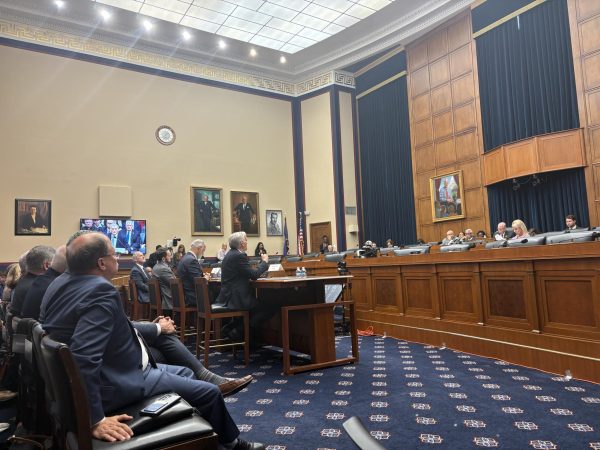
Alongside Groves, Félix V. Matos Rodríguez — the chancellor of The City University of New York — and Rich Lyons — the chancellor of the University of California, Berkeley — testified. Matt Nosanchuk, the former deputy assistant secretary for the Office for Civil Rights in the U.S. Department of Education, also served as a witness for the committee.
The committee aimed to examine foreign funding, alleged antisemitic faculty and student protests with the hearing.
Rep. Tim Walberg (R-Mich.), the chair of the committee, opened the hearings by saying the committee is seeking to examine how antisemitism is appearing in higher education institutions.
“Today’s hearing marks the next phase of the committee’s work: an effort to understand why this wave of antisemitism was able to so easily consume the nation’s universities in the first place,” Walberg said at the hearing.
“The violence, fear and alienation felt by Jewish students is, at its core, a result of administrators and their staff lacking the moral clarity to condemn and punish antisemitism that is creating a hostile environment for Jewish students on American campuses,” Walberg added.
Groves was the first university leader to testify at the hearing, focusing on Georgetown’s commitment to preventing antisemitism and fostering interreligious dialogue. Addressing Hamas’ Oct. 7, 2023 attack on Israel, Groves recognized Georgetown as one of the first universities to condemn the attacks.
Groves said Georgetown prioritizes a diversity of perspectives on the Israel-Hamas war and adapted to student advocacy related to the war, highlighting speaker events supporting Palestine and events with members of the Israel Defense Forces (IDF).
“Given our Jesuit values, we expose students to different viewpoints on the Middle East,” Groves said. “In addition to speakers on Gaza, we’ve hosted IDF soldiers, families of Israelis and Palestinians who’ve lost their lives, families of U.S. hostages in Gaza.”
“Georgetown is not perfect, and as events evolve, we’ve had to clarify rules of student behavior,” Groves added. “But since Oct. 7, Georgetown has not experienced an encampment, physical violence, cancellation of commencement activities or city police activities.”
Groves Responds to Allegations of Antisemitism from Faculty
After opening statements, representatives on the committee had the opportunity to question Groves and other university leadership about campus antisemitism.
Rep. Virginia Foxx (R-N.C.) questioned Groves regarding posts on X, formerly known as Twitter, from Professor Jonathan A. C. Brown (COL ’00), former chair pending review in the department of Arabic and Islamic studies.
In June, conservative groups attacked Brown for a post on X that some interpreted as a call for Iran to bomb a U.S. military base. Brown later deleted the post, saying he did not intend for it to seem like a call for violence.
“I deleted my previous tweet because a lot of people were interpreting it as a call for violence,” Brown said in a later post on X. “That’s not what I intended.”
Foxx asked Groves whether faculty like Brown belong at the university.
“Is this person really suited to be educating the next generation of American diplomats?” Foxx said at the hearing.
Groves disclosed, for the first time, that the university removed Brown as chair and placed him on leave while reviewing the case. Brown has tenure at Georgetown.
Rep. Glenn Thompson (R-Penn.) later asked Groves about flyers slid under the doors of first-year residences on their respective move-in days in August 2024. The flyers falsely claimed residents had been evicted from their dorms and were required to move immediately.
The flyers also called for Georgetown University to divest from major companies that hold contracts with the Israeli military, such as Google’s holding company Alphabet Inc. and Amazon, and for the university to end study abroad programs in Jaffa and Haifa in Israel.
Groves said university staff removed the flyers, identified and disciplined the perpetrator and condemned the actions.
“This was abhorrent, and for the students who saw this and were hurt by this, we apologize as a university,” Groves said. “This is intolerable at Georgetown; we can not have this sort of behavior.”
Thompson then moved to Georgetown’s professors, asking Groves if the university employed antisemitic faculty. In response, Groves said the university allows faculty to exercise free speech rights while monitoring statements that impact students.
“We police carefully the behavior of our faculty in the classroom and their research activities,” Groves said. “They are free, as all residents of the United States, to have speech in the public domain.”
Thompson also cited alleged posts from a senior fellow in the Alwaleed Bin Talal Center for Muslim-Christian Understanding (ACMCU) applauding Hamas’ Oct. 7 attack. The Hoya was unable to independently verify the existence of such posts.
Groves declined to comment on the specifics of the cases Thompson mentioned but said the university has fired faculty for antisemitism actions.
“I can assure you, Congressman, that we have dismissed faculty for antisemitic behavior on social media and in the classroom and also dismissed staff for the same behavior,” Groves said.
Thompson also mentioned statements from Mobashra Tazamal, associate director of Georgetown’s Bridge Initiative, which researches Islamophobia. Tazamal allegedly reposted a statement that read, “Israel has been recreating Auschwitz in Gaza for two years,” according to Thompson. The Hoya was unable to independently verify the statement’s existence.
Groves said the statements were not reflective of himself or the university.
“I reject those kinds of statements,” Groves said in response. “That’s not the policy of Georgetown, and I want everyone to know that to the extent that that hurt Jewish students, Jewish faculty, Jewish staff at Georgetown, I apologize for that. But that’s behavior covered under the First Amendment on social media that we don’t intervene on.”
“What we do intervene on quickly is behavior that affects our students in the classroom and research-related activities that involve students,” Groves added.
Groves pushed back on assertions that the university was permitting antisemitism in campus culture, saying the university collaborates with campus organizations to support Jewish students.
“We have a variety of ways to stay in touch with our Jewish community,” Groves said. “Our Jewish Life Office is a wonderful resource, we meet with our rabbi, we meet with Jewish students, we meet with Jewish faculty to keep a sense of the pulse of the culture.”
Groves Responds to Alleged Antisemitism from Speakers
Several congressmembers questioned Groves regarding speakers who visited campus and were allegedly antisemitic in the past.
Rep. Rick Allen (R-Ga.) focused on Francesca Albanese, the United Nations special rapporteur on the occupied Palestinian territories — whom the United States recently sanctioned over allegations of antisemitism and anti-Israelism. Albanese is affiliated with Georgetown’s Institute for the Study of International Migration and spoke about the Israel-Hamas war at an on-campus event in October.
Allen asked Groves if she was still affiliated with the university after accusations of antisemitic remarks. Groves said Albanese, who has spoken at the university condemning Israel, is listed as an affiliate yet not on the payroll.
Responding to Groves, Allen said universities should fire faculty and fellows responsible for antisemitic rhetoric.
“You’ve gotta have guardrails, and if you get outside those guardrails, you do something about it,” Allen said at the hearing. “You don’t let this stuff just linger on, because it just rots.”
“For crying out loud, you’ve got to get rid of these people that are perpetrating this hate,” Allen added.
Later in the hearing, Rep. Burgess Owens (R-Utah) asked the university leaders a series of questions to define antisemitism. Groves agreed with Owens’ statement that “denying the Jewish people their rights to self-determination” is antisemitism.
Owens also asked whether “Globalize the intifada” and other chants “celebrating violence against Jews” constitute antisemitism.
Groves said, “As a threat, absolutely.”
Owens questioned Groves on Georgetown’s connections to Mohammed el-Kurd, a Palestinian writer and activist, directing Groves to statements el-Kurd has previously made, which strongly criticize Israel.
Owens then posed a hypothetical to Groves, asking whether Groves would allow “a member of the KKK who wished the deaths of Black Americans to speak at Georgetown.”
Groves said the university would not platform or invite a member of the KKK.
Owens responded by comparing the KKK to antisemitic individuals, saying Georgetown should prevent pro-Palestinian, allegedly antisemitic individuals from having a platform on campus.
“If Georgetown would disallow white KKK bigots on campus, why would the university allow faculty or students to invite Palestinian antisemitic bigots, because that’s who this guy is,” Owens said at the hearing.
Four times in the hearing, protestors condemning the United States’ support for Israel in the Israel-Hamas war interrupted.
When the fourth protester interrupted the hearing, Rep. Randy Fine (R-Fla.) yelled at the protester, saying the university leaders are responsible for fostering a culture of acceptance.
“Shut up and get out of here, you loser,” Fine said at the hearing. “It is the attitude that you have allowed on your college campuses that makes people think this is okay.”
Immediately afterward, Fine criticized Groves’ response to Owens on having speakers from “many different sides,” saying there should be no exception for antisemitism.
“There should not be a ‘but’ after it when it comes to antisemites,” Fine said.
Fine then asked each university leader to explain how they could tell his son “in good conscience that he would be safe at any of your schools.”
Groves said antisemitism is antithetical to Georgetown’s mission, and religious tolerance is ingrained in the university.
“I would deeply hope he would feel safe, and there’s a reason for this at Georgetown,” Groves said. “If Jewish students don’t feel safe, if they have fear, it’s not just hurtful to them, it destroys our mission of interreligious dialogue.”
Groves on Georgetown’s Qatar Connection
Several congressmembers asked Groves to clarify Georgetown’s connections to the Qatar Foundation and the Qatari government..
The campus first opened in 2005, and the university recently renewed its contract with the Qatar Foundation. More than 1,000 undergraduate and graduate students have graduated from GU-Q, which hosts a range of programs under the School of Foreign Service (SFS).
During his opening statement, Groves said the university maintains full control over curriculum, admissions, faculty and research.
“At Georgetown, non-U.S. financial support is accepted only to fulfill our longstanding mission, but never to alter it,” Groves said.
Later in the hearing, Rep. Robert Onder (R-Mo.) asked about the purpose and origin of GU-Q, which Groves said intends to spread Georgetown’s values and education to the Middle East.
“My understanding is that the vision of Qatar Foundation at the time was to build a group of western universities in Doha that would offer western education to the region — in a vision that Qatar would gradually become a hub for higher education and research,” Groves said.
Groves also agreed with Onder’s statement that the Qatar campus would offer “Western-style, Jesuit-style higher education in the Middle East.”
Rep. Mark Harris (R-N.C.) criticized the university’s choice to award a medal to Sheikha Moza bint Nasser, chairperson of the Qatar Foundation. Nasser’s award recognizes her humanitarian work in children’s education.
Nasser previously made statements on social media praising Yahya Sinwar, who orchestrated the Oct. 7 attacks, after his death. Nasser wrote that Sinwar will “live on” after his death in October.
Harris said Georgetown’s recognition of Nasser contradicted its values.
“It seems that some at Georgetown have been captured by the beliefs of some ideologies that are at odds with Georgetown’s Catholic and Jesuit mission,” Harris said at the hearing. “In fact, it looks like you are celebrating ideas that are in direct opposition to these values.”
When Harris asked why Georgetown gave Nasser the medal, Groves said the university was celebrating her humanitarian work.
“The award to Sheikha Moza was given for her work — her decades-long work — for educating, getting access to education to the poorest children around the world,” Groves said. “At this point, there are 22 million children in the world that would not have had access to education without her work.”
Harris asked Groves if the “destruction of Israel” is something Georgetown would support. Groves said he does not agree with the statement, yet would not revoke the medal because the award pertained to Nasser’s work for educating children and exemplifying Jesuit values.
“We will not revoke the medal because the reason for the medal is still true,” Groves said.
Rep. Michael Baumgartner (R-Wash.) further asked Groves about Georgetown’s transparency in its funding in Qatar. Baumgartner ultimately appeared more pleased with Groves’ responses.
Groves said the university attempts to report on all foreign funding and noted that Georgetown received a letter of commendation from the U.S. Department of Education following a 2020 investigation into Qatari influence.
Groves told Baumgartner that he would be “happy to commit” to ensuring every dollar of foreign money would be transparent.
Toward the end of the hearing, Rep. Bobby Scott (D-Va.), ranking member on the committee, asked Groves about the influence Georgetown has on international campuses, particularly in Qatar.
“We’re very proud of our mission in Qatar,” Groves said. “It’s completely consistent with the Jesuit animation of working at the frontiers, of serving groups that are not served easily in Washington.”
Groves added that students at GU-Q also receive a Jesuit education and the “give and take of academic freedom that takes place on our D.C. campus.” He also said that 70% of students at GU-Q are women.
The Hearing Ends
After three hours of testimony and questioning, the committee moved to closing arguments from Scott and Walberg. Seven Democrats and six Republicans on the committee did not ask questions.
Scott submitted a letter into the record during his closing remarks from six family members of Israeli hostages captured by Hamas on Oct. 7. The family members sent the letter, titled “In a time of unimaginable pain, Georgetown made space for us,” to the committee July 11.
Walberg closed by criticizing the answers of the three university leaders, saying Groves overlooked antisemitism at GU-Q in his responses.
“Georgetown refuses to recognize antisemitism at its Qatar campus,” Walberg said. “At least unwilling to say that their responsibility is to make sure that the activities that go on at the campus, that the awards given to people who are antisemitic, seem to continue.”
Walberg emphasized the importance of the hearing, saying he expects other universities to take steps to address antisemitism and hate on campus.
“I would say for those that are watching, we expect you to step up to the plate and aggressively end any type of antisemitism; racism, we’ll add that as well; Islamophobia or anything else to make sure that we have diverse campuses but they promote education that refines, builds up and is secure for all students on campus,” Walberg said.


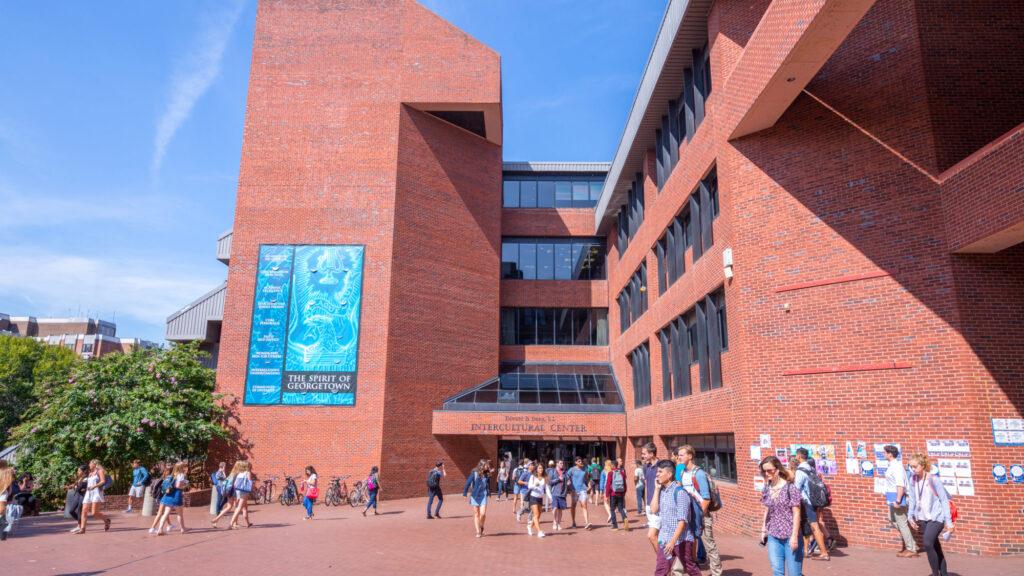




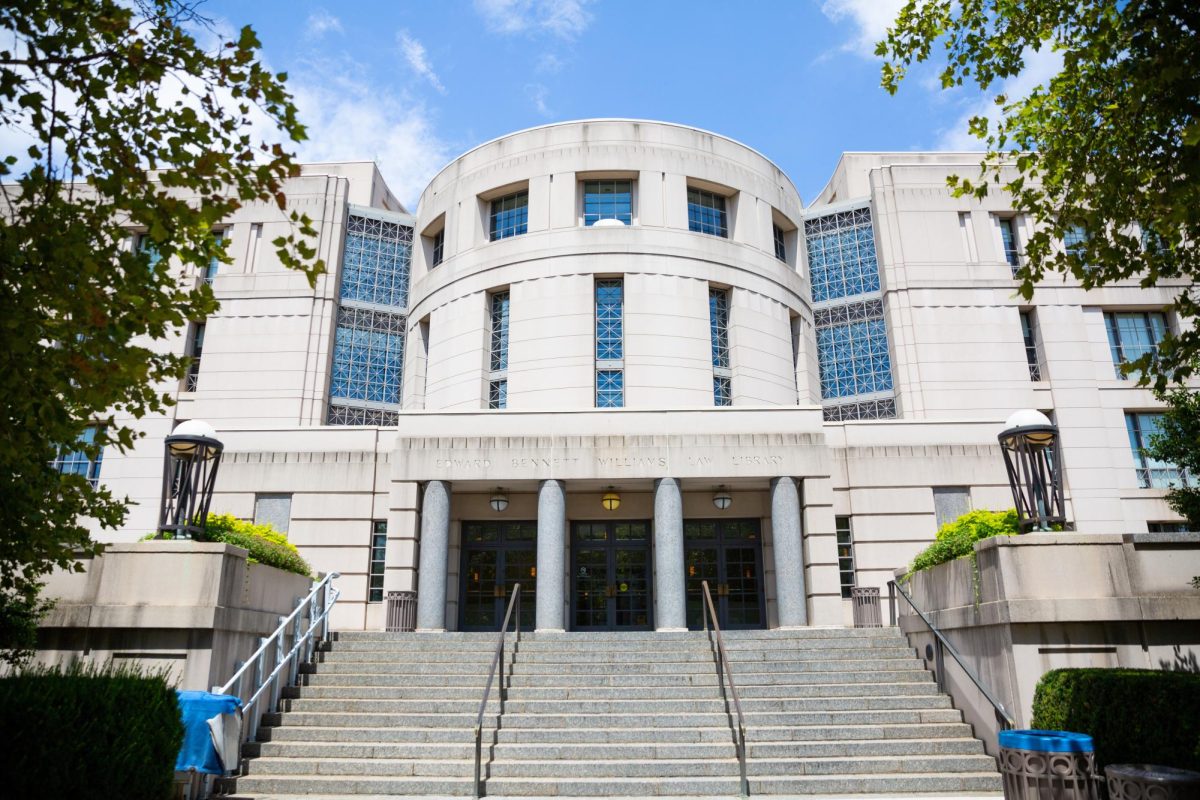
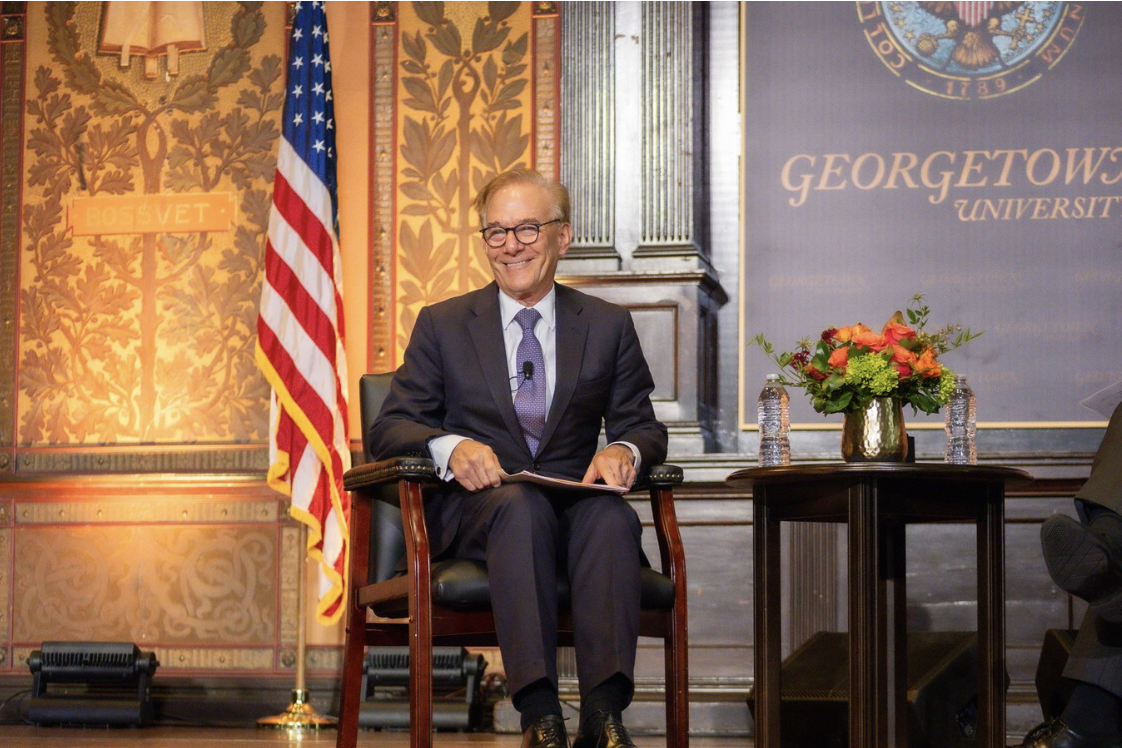
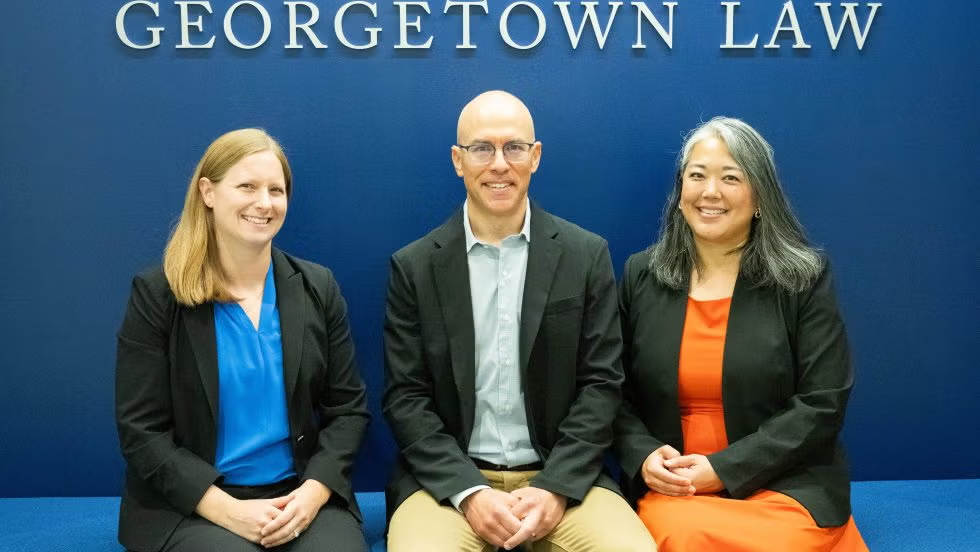

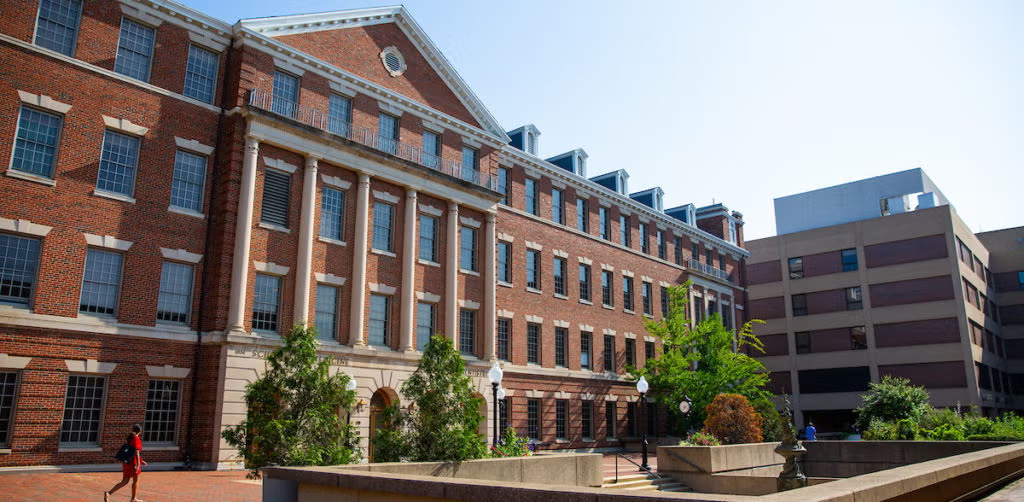
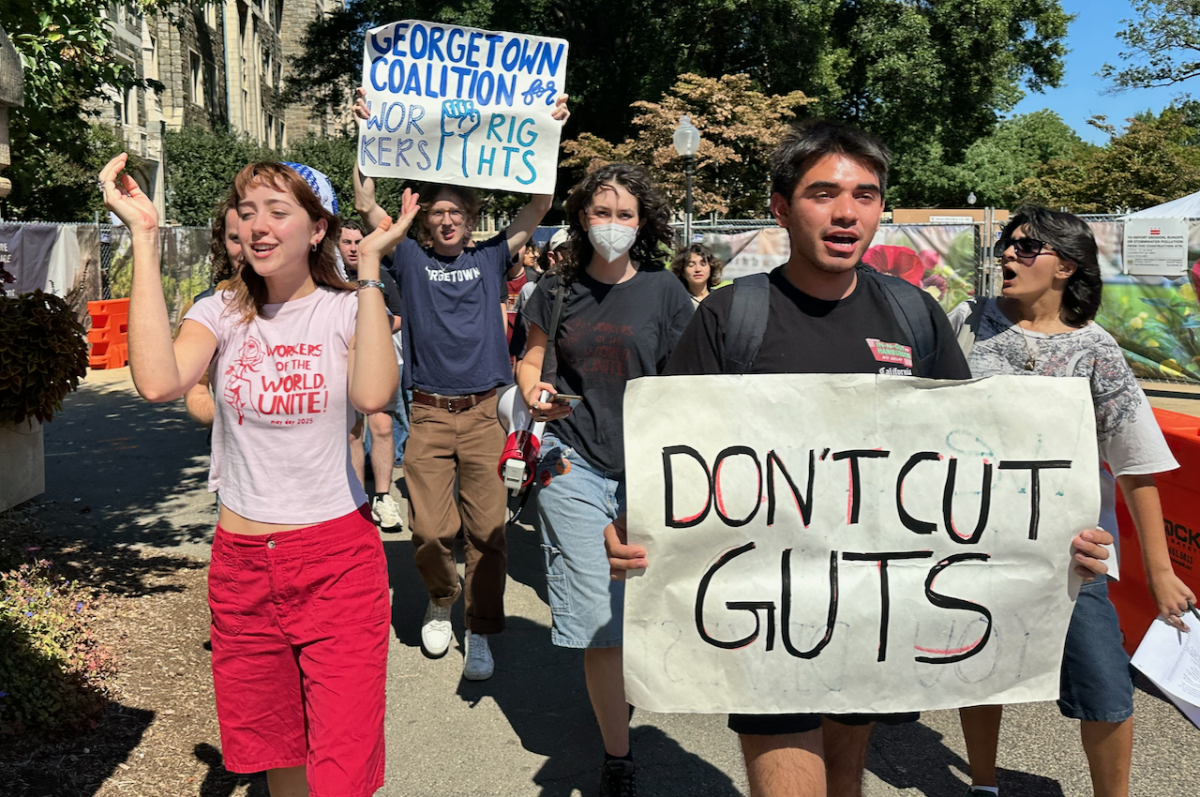



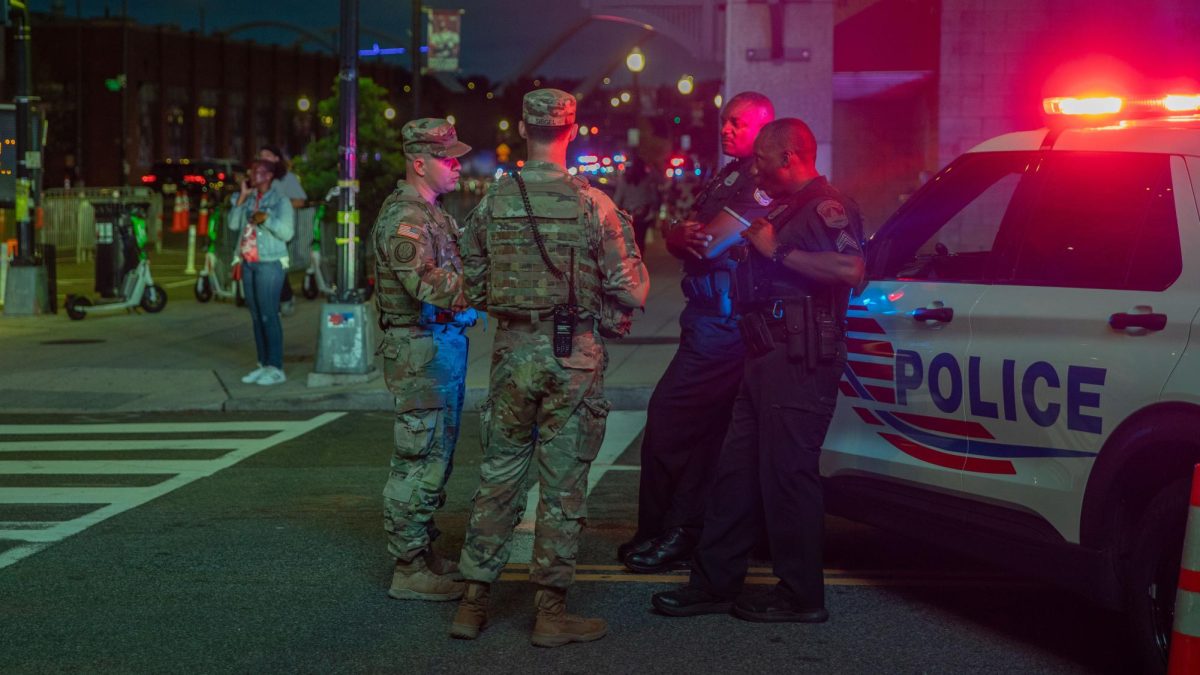
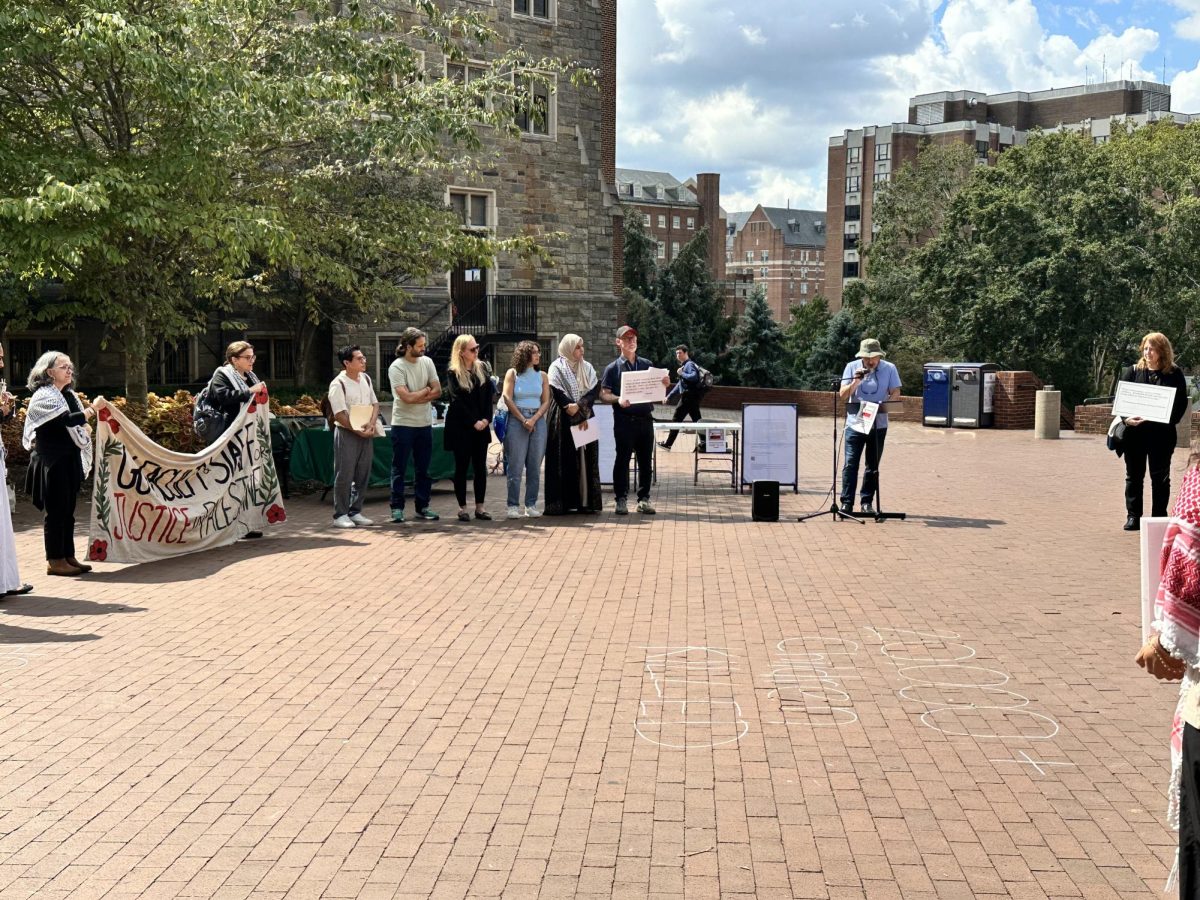
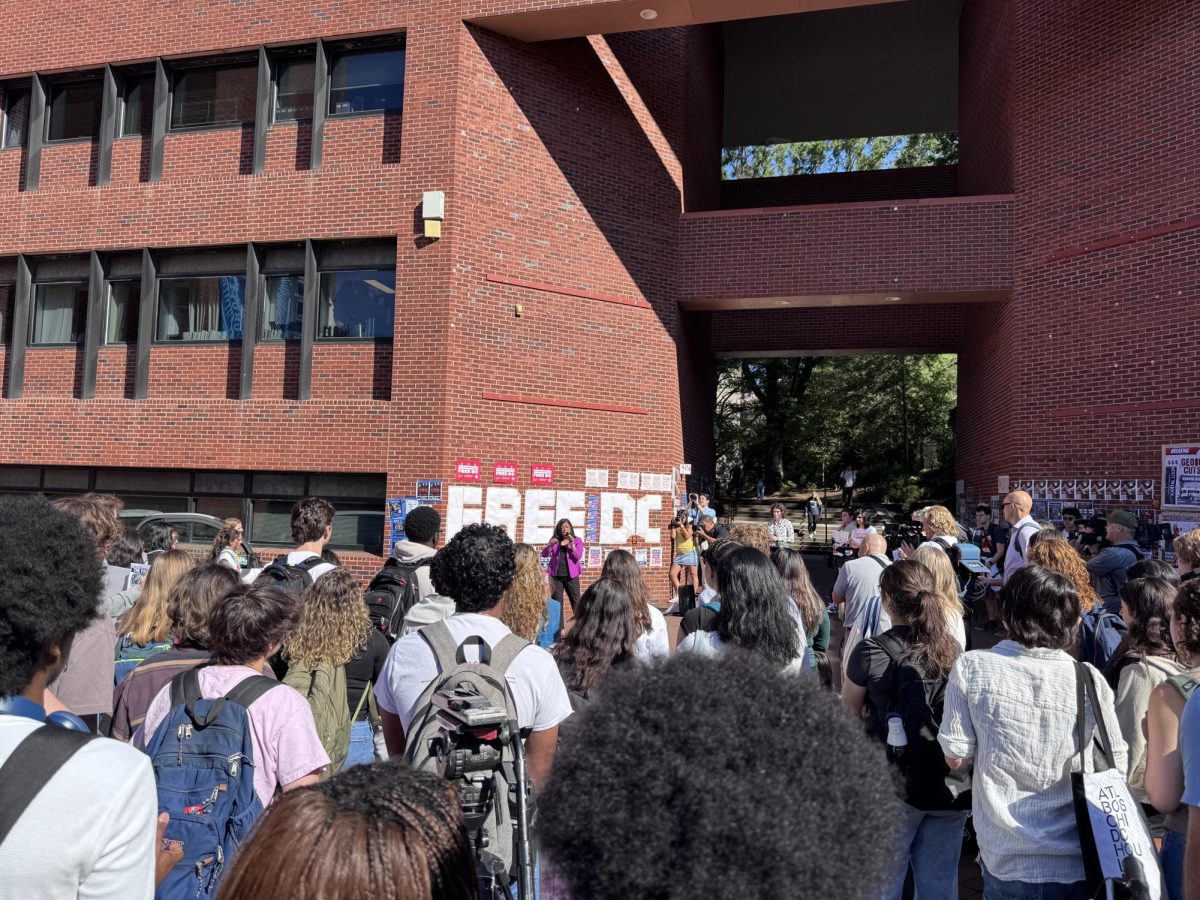

Mr. T. • Jul 21, 2025 at 4:44 am
Talk is cheap.
Lot’s of claims ny Grove but very little action to prevent antisemitic discrimination.